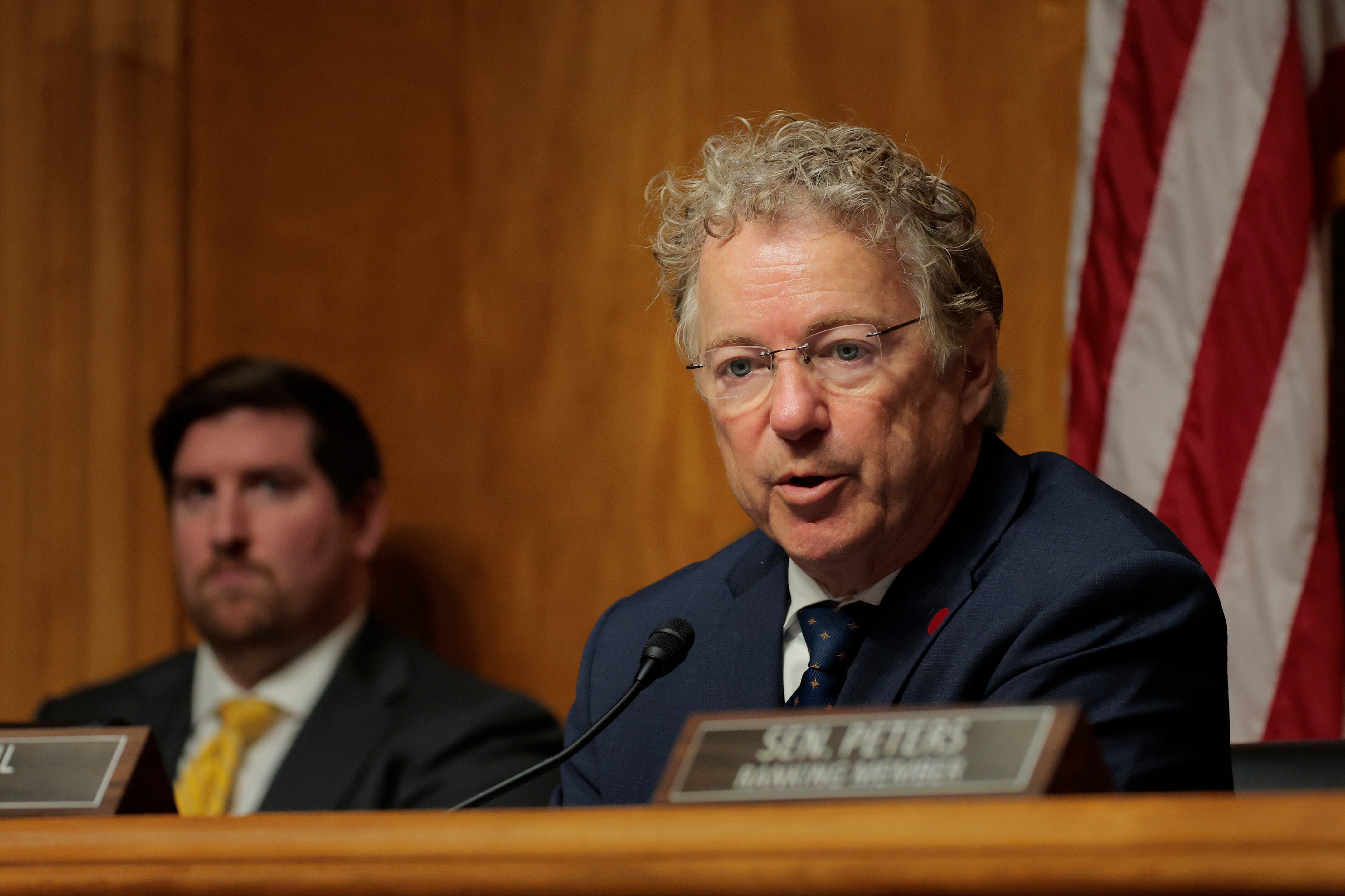Donald Trump’s “big, beautiful bill” passed the House of Representatives last week, but faces a still-uncertain future in the Senate.
With the House Republican budget package now on its way to the upper chamber after a marathon journey through the Rules Committee and House floor this past week, Senate Majority Leader John Thune is taking a look at what it will require to pass Trump’s bill through the upper chamber, where it’s already facing heavy resistance.
On Sunday, two Republican senators hit the Sunday show circuit to voice objections from the conservative side — objections that House Speaker Mike Johnson is familiar with after last week’s vote. Sens. Rand Paul and Ron Johnson derided the bill’s deficit spending measures, which despite the GOP’s $1.5trn cuts to Medicaid, food stamps and other programs are still set to increase the federal budget deficit by $3.8trn over a decade, thanks to one of the GOP’s main priorities: the extension of the 2017 Trump tax cuts.

The bill does that, and more — a late game deal between Johnson and the SALT caucus, a coalition of Republicans from blue states, secured a provision in the legislation that would raise the cap on deductions for state and local taxes (SALT) from $10,000 to $40,000 for American households earning under $500,000 annually.
Johnson, of Wisconsin, told CNN’s Jake Tapper on State of the Union this Sunday that Republicans would be responsible for “mortgaging our children’s future” by adding so much to the federal debt, which currently sits at $36trn.
"It's immoral. It's wrong. It has to stop,” Johnson said. “This is our moment. We’ve witnessed an unprecedented level of increased spending.”
“58% since 2019,” the senator continued. “This is our only chance to reset that to a reasonable, pre-pandemic level of spending.”
Paul, a staunch fiscal conservative and member of the party’s libertarian wing, outlined similar concerns to Shannon Bream on Fox News Sunday: "Somebody has to stand up and yell, 'the emperor has no clothes.'”

“Everybody is falling in lockstep on this,” said the Kentucky Republican senator. “’Pass the big beautiful bill. Don't question anything.' Well, conservatives do need to stand up ... if we don't stand up on it, I really fear the direction the country is going."
The debt increase fears were raised repeatedly by conservatives on the House Freedom Caucus before the bill’s final passage on Thursday. But every member of the caucus voted for the bill, save chairman Andy Harris, who voted “present”. Two other Republican members of the House, Warren Davidson (who was expelled from the Freedom Caucus last year) and Thomas Massie, voted against the bill.
But John Thune’s troubles do not end there.
The Hill separately reported last week that a group of roughly a half dozen Republican senators was privately meeting with the Senate majority leader to discuss a different angle of concern: the bill’s plans to change Medicaid by limiting state provider taxes (which allow state governments to claw back some Medicaid funding).
While the GOP “big, beautiful” budget plan does impose new work requirements and more frequent eligibility checks on Medicaid recipients, it avoided some of the larger cuts to the program which conservatives were hoping to include. Even so, an analysis from the nonpartisan Congressional Budget Office (CBO) found that it would still kick millions off of Medicaid and other health care plans obtained through the Affordable Care Act (ACA) marketplace system.
“There’s probably five, six, seven of us who, if you do anything that cuts into benefits, you’re going to have a real problem. The leader is aware of that,” one Republican senator, who was not named, told The Hill this past week.
A number of other senators, including Republicans from states with large rural populations, are publicly skeptical about aspects of the plan that could endanger or financially ruin rural hospitals, which rely in large part on Medicaid funding to survive.
By making too many changes to the bill, Thune risks leaving it in a state that cannot be re-passed by the House. But the Senate leader also has his own caucus to worry about, as well as Donald Trump’s continued demand for the bill to remain in one piece, rather than be split up. The president (and many of his allies) believe that passage of one bill will be more politically achievable for the GOP caucuses in the House and Senate, where in both chambers the party has narrow margins over Democrats.
The bill is a mish-mash of a number of the Trump administration’s year-one priorities, including a surge in funding for border security measures, an extension of the president’s signature tax plan, and a boost in military spending.
Ron Johnson threw cold water on even that basic strategy on Thursday, in a gaggle with reporters.
“We have to split it up,” he said. “Break it up. Break it up and focus on the areas of agreement.”







